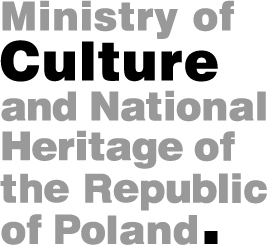|
|
traces of memory Original manuscripts of the memories of Włodzimierz Fiszer from 1935 – a land and water building engineer with a speciality in railways, a graduate of the Lvov Technical University, member of the Lvov Academic Aviation Club, who wrote and delivered speeches for Lvov Radjo on topics such as social issues, politics, technology and ethics. Włodzimierz Fiszer (excursion one) "Today's Grunwald" (on the 525 Annivers. Grunwald Battle). A speech delivrd. in Pol. Lvov Radjo, on 13 Jun. 35, at 18:30 hrs. page 1 There are facts and events in the history of Poland which shine brightly like ever-eternal fires on the route of its historical evolution, constituting an ever living testimony to the greatness of our Nation, documented by heroic feets of valour on the fields of fights and battles. One of the links in the chain of the epic tales of the Polish armed forces is the illustrious victory of the Polish forces of King Jagiełło over the Teutonic Knights at Grunwald. 525 years will have passed this year since the moment when that memorable battle was fought in the fields between Grunwald and Tannenberg, on the territory of today's East Prussia, bringing not only a magnificent victory to Poland, reinforcing its international standing, but, also, being the last act of the historical existence of the Order of Teutonic Knights. Because, from that moment, the Order irrevocably lost both its moral power and strategic authority in Europe after its defeat at Grunwald. Opening today this praiseworthy page of the Grunwald Victory, narrated by Polish historians, poets and writers of prose, and rendered for eternity in numerous masterpieces of fine art thousands of times, let us now soar on the wings of imagination beyond the northern border of the Polish Republic to the site of that great Polish deed. Let us look at it through the prism of today's everyday reality and see for ourselves how this site presents itself to the eyes of the tourist. page 2 Having crossed the Polish border at Krasnołeka, we drive onto a perfect tarmac communication avenue, running deep into the country, omitting in meandering serpentines utterly picturesque and melancholic lakes, being lost now and then amidst the emerald green of coniferous woods. We go passed Neidenburg and Hohenstein and now we have arrived at the area of the Commune of Grunwald. It needs to be emphasised that Grunwald and Tannenberg are 2 different villages, distant from each other by several kilometres, while the Grunwald Fields, where the battle of 1410 took place lies between them. Yet, the two villages play unequal roles in today's cultural life of East Prussia; while one of them is like a cherished daughter, the other shares the fate of Cinderella – which in this case is Grunwald. The tendency in Prussia today is definitely to drift towards the elimination of the term "Grunwald", even from the historical vocabulary, replacing it by the name Grunfelde. The latter name being identified with Tannenberg, recollecting the memory of one of the greatest successes of the war of Marsh. V. Hindenburg in 1914, and the fact that the remains of this German leader rest in Tannenberg. Now, however, we are approaching the historic site of the Battle of Grunwald. Following a road southwards, from Tannenberg to Ludwigsdorf, we arrive at the district of "Osterode", and here we can see several dozen square kilometres of slightly undulating terrain spreading before us, covered here and there by an old, dormant forest, the rest of the area being barren page 3 wild moors. We have reached our destination. Now, we are climbing a mild slope offering a magnificent, wide vista of the entire surroundings and now – the historic arena of the Battle of Grunwald has exposed itself fully before our eyes. We are slightly moved, the emotion being compounded as our guide explains to us that the hill upon which we are now standing is preciely the place where the Grand Master of the Teutonic Ord. Urlich von Jungingen noticed the first company colours of Jagiełło and Witold's allied armies. We become engulfed by a specific mood of historical recollection and thoughtful concentration. Our eyes follow the circular route across the vast spreading land; our gaze encompassing it all as if inhaling the image. We ask: Why are you a land we are seeing for the first time? – Because the soul of the Polish visitor here desires – and should desire – to enter into a nameless concord with the breath of this land, on which the victorious feet of its kin once stood. Well, now our inner ear becomes subtler, and our thoughts, soothed by the strange sweetness of the silence, slowly shed the bonds of the present and fly to the past through the misty veil of the centuries. Jagiełło, Urlich v. Jungingen, Grunwald – these names ... for a while, cease to be an echo of the past in books and, now, seem to speak to our souls directly. How much depth can be felt, then, in their silent reverberation, how much bygone fame, the bygone fame of (Sic!). |

|
|||
| |||||
